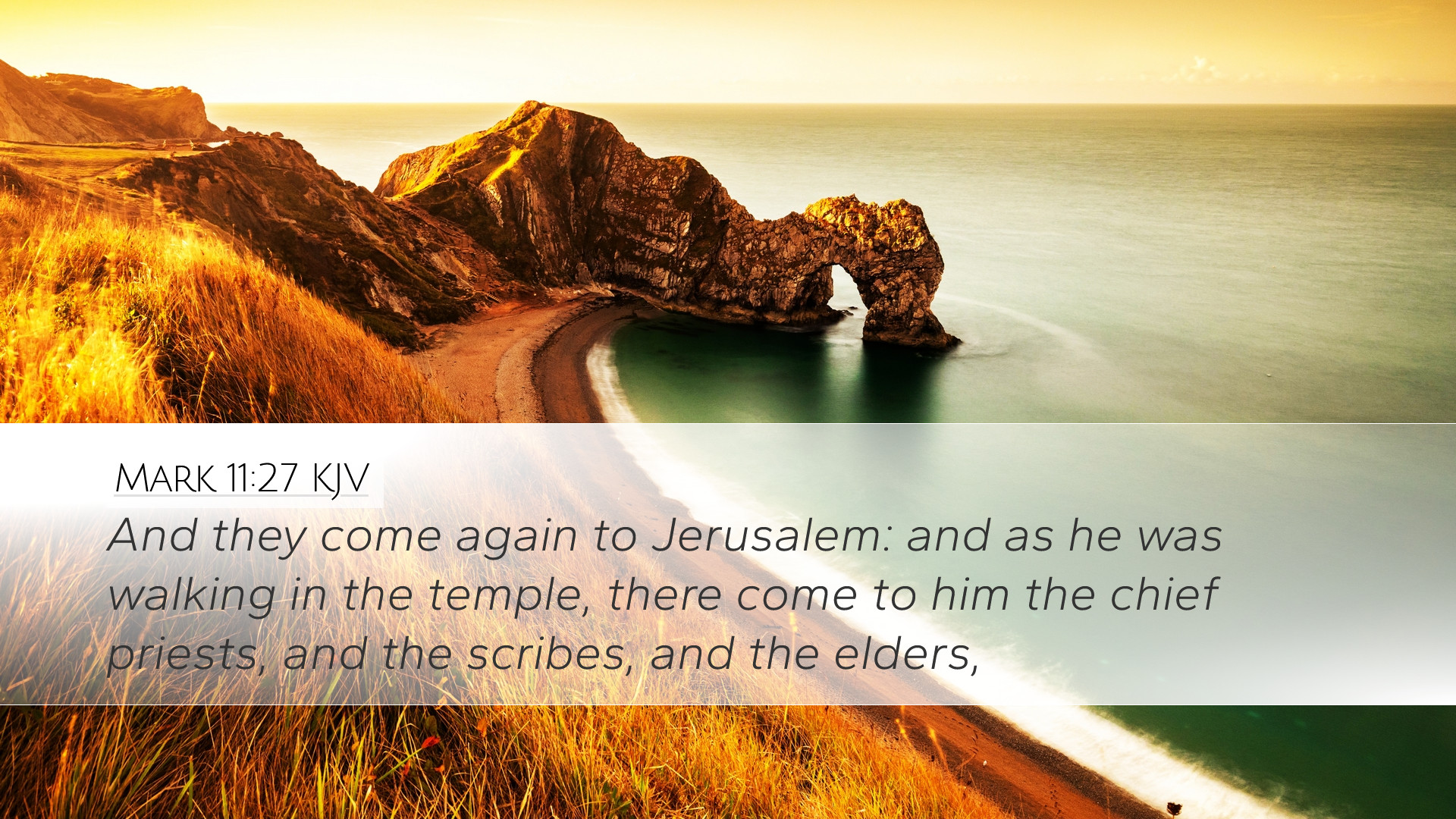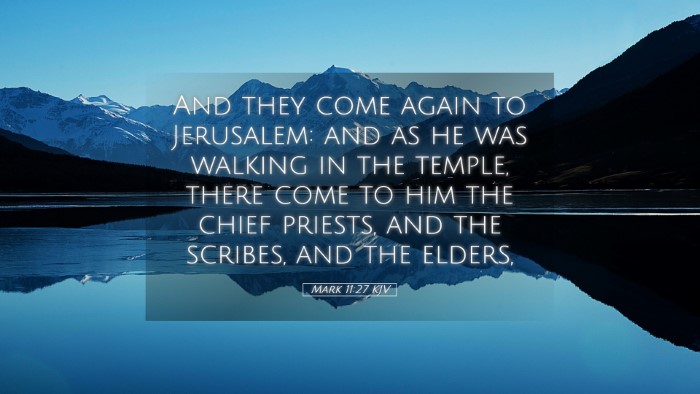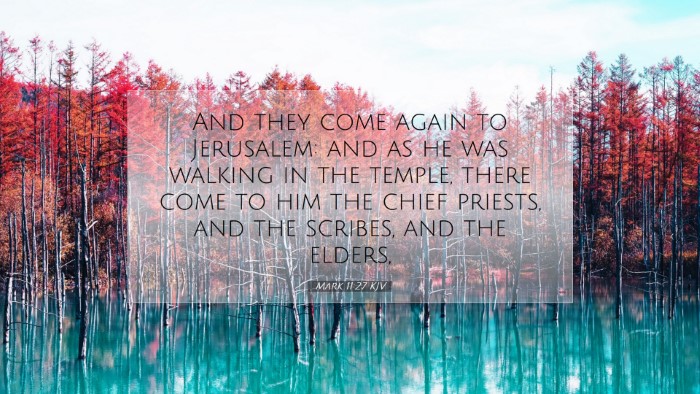Commentary on Mark 11:27
Mark 11:27 states: "And they came again to Jerusalem: and as he was walking in the temple, there came to him the chief priests, and the scribes, and the elders." This verse sets the stage for a significant exchange between Jesus and the religious leaders of His time. To appreciate this passage fully, it is essential to consider the context and the implications of this encounter.
Contextual Background
The events of this passage occur shortly after Jesus' triumphant entry into Jerusalem and the cleansing of the temple. It is within this context that the religious leaders, feeling threatened by Jesus’ authority and popularity, confront Him.
The Authority of Jesus
In this encounter, we witness the clash between human authority and divine authority. The chief priests, scribes, and elders represent the established religious society, which had grown increasingly corrupt and self-serving. Their challenge implies an attempt to undermine Jesus' authority publicly.
Insights from Matthew Henry: Henry emphasizes the audacity of the religious leaders who confront Jesus openly in the temple—the very heart of Jewish worship. He notes that their inquiry about Jesus’ authority was not a genuine search for truth but rather an attempt to catch Jesus in a statement that could be used against Him. Henry suggests that their motives were influenced by envy and fear of Jesus’ growing following.
Insights from Albert Barnes: Barnes highlights the significance of the temple setting. He notes that the temple was a place of divine encounter and that the challenge posed to Jesus was seemingly contradictory, as they sought clarification from one who operated under divine sanction. Barnes further interprets their question about Jesus' authority as indicative of their lack of spiritual discernment and recognition of the Messiah’s identity.
Insights from Adam Clarke: Clarke adds depth by analyzing the implications of the leaders’ approach. He observes that their confrontation illustrates a broader resistance to divine authority, a theme recurrent throughout scripture. Clarke points out that although the leaders held positions of power, their questioning of Jesus exemplified spiritual blindness, as they failed to acknowledge the miraculous signs that accompanied Jesus' ministry.
The Nature of the Confrontation
This passage reveals a pivotal moment not just for Jesus but for His followers and the early Church. By questioning Jesus' authority, the religious leaders unwittingly set the stage for a profound teaching moment. Jesus, with His typical wisdom, responds to their challenge not with a direct answer, but with a question of His own, asking about the origin of John’s baptism. This response effectively demonstrates His authority and exposes the leaders’ hypocrisy.
Meaning for Pastors and Theologians: The learned exchange here serves as a reminder of the crucial importance of integrity in spiritual leadership. Pastors and theologians can reflect on the nature of their authority: is it derived from a genuine relationship with God and His Word, or is it merely a positional authority lacking spiritual substance?
Lessons on Authority
- Holy Boldness: Jesus exhibited holy boldness by standing firm in the face of opposition. His example encourages leaders to remain steadfast in proclaiming truth despite societal or institutional pressures.
- Evaluating Authority: This engagement urges leaders and scholars to evaluate the source of their own authority. The legitimacy of religious authority is rooted in obedience to God's will, rather than in human traditions or accolades.
- Spiritual Discernment: The inability of the religious leaders to perceive the validity of Jesus’ authority highlights the necessity of spiritual discernment. Leaders are encouraged to seek the wisdom of the Holy Spirit in understanding God's movement.
Conclusion
As this passage unfolds, it reveals the tension between Christ and the established religious order. Mark 11:27 serves not merely as a narrative detail but as a profound theological commentary on the nature of authority, the blindness of religious pride, and the call for genuine discipleship. Understanding this moment enriches the theological discourse and equips spiritual leaders to navigate similar challenges in their ministry today.
In summary, Mark 11:27 invites reflection on the weight of authority in spiritual leadership, the significance of recognizing divine truth, and the necessity of steadfast faith in the face of challenge. The interplay of light and darkness found in this passage is a poignant reminder of the ongoing struggle between the Kingdom of God and earthly power.


